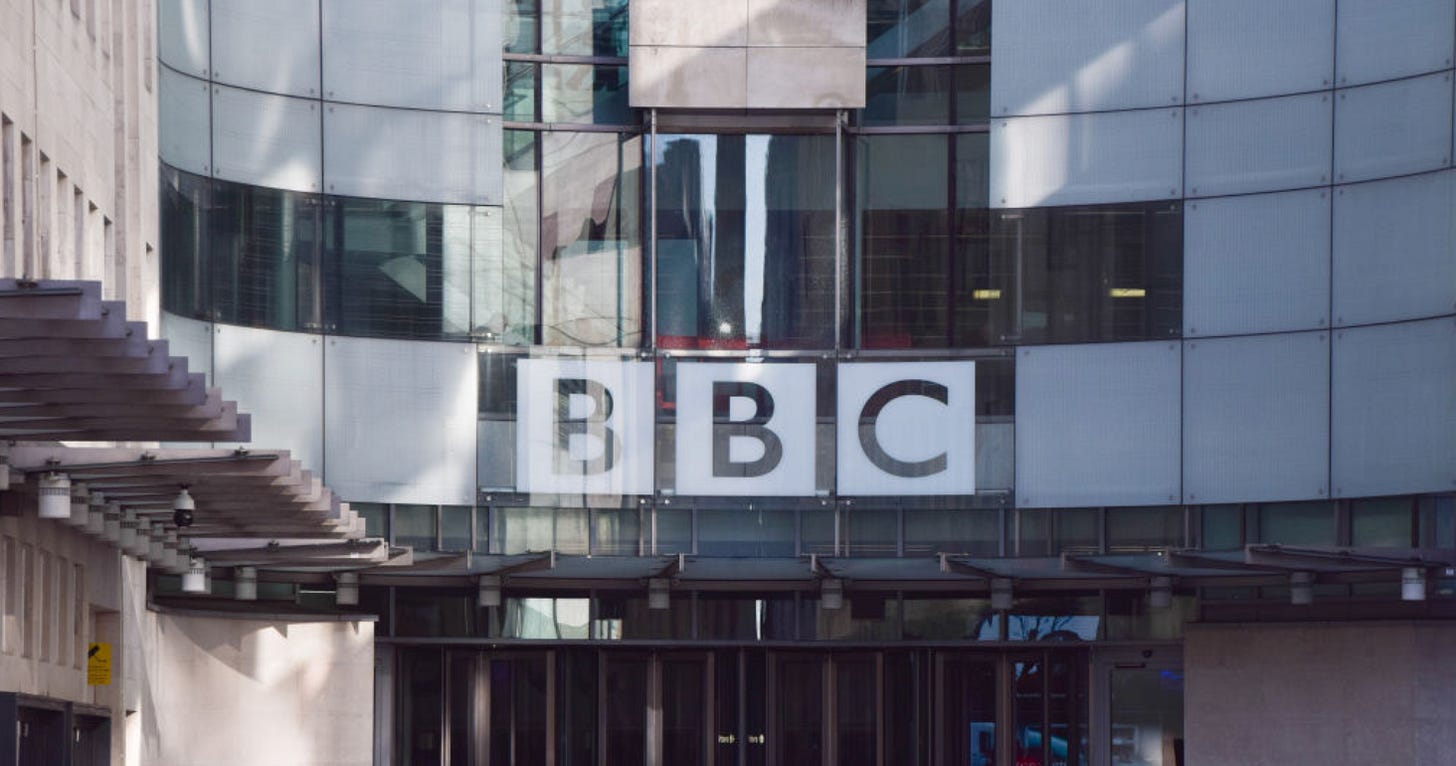Issue № 85 | London, Sunday 9 July 2023
Apologies for my absence, dear reader. The last few weeks have been busier than usual at work leaving me too little free time to bring you IMTW.
Read on to learn why:
① Making it hard is the wrong way to dissuade customisers from leaving you.
② Product stickiness should be built on incremental value to the customer.
③ Slick mobile apps can’t match the appeal of a competitive interest rate.
④ Tokenisation’s promise remains largely unfulfilled but that’s about to change.
⑤ The UK media landscape is still surprisingly regionalised and parochial.
⑥ Marketing pays for itself - first with user growth, then share of wallet.
⑦ The UK can lead in securities tokenisation but it requires regulatory clarity.
What's new
Meta launched Threads, its Twitter clone, this week. The FT reports.

In short:
“Meta said more than 30mn people had signed up to its long-awaited competitor to Twitter in what chief executive Mark Zuckerberg pitched as a ‘friendly’ alternative to the struggling social media platform owned by Elon Musk.”
“The app, called Threads, is a ‘text-based conversation app’ where users are able to publish posts up to 500 characters long and include links, photos and videos. As with Twitter, the posts can be replied to, liked or shared by others.”
“The launch of the app, dubbed the ‘Twitter killer’ by some users, poses a direct threat to Musk’s platform. Since Twitter was bought by the billionaire for $44bn in October, it has lurched from crisis to crisis, frustrating users and big advertisers while teetering on the edge of bankruptcy.”
Why it matters
Don’t worry, I’m well aware the last thing the world needs is another ‘hot take’ on Threads vs Twitter. This is not that. I only raise the Threads news because the product management decisions Meta took in bringing this new app to market are worth considering. Specifically, the only way to open a Threads account is to have an Instagram account to link it to. Once your account is open, should you ever want to delete it, the corresponding Instagram account would be deleted too.
This approach has huge advantages in terms of removing friction in the sign-up process. If you’re already logged into Instagram on your phone, opening a Threads account is the matter of a couple of clicks. Once open, you’re dissuaded from ever closing your account out of concern for your Instagram. That’s what product marketers the world over have been taught to aim for in their products: stickiness, the process of making it less likely your customers will leave you for a competitor. Even 20 years ago when I first worked for SWIFT, I recall our ambitious head of marketing drilling into our product managers the importance of creating stickiness in their products (not hard, you would have thought, given SWIFT pretty much runs a monopoly, sorry I digress).
① But here’s the rub: there are different ways to keep a customer loyal and I’d argue that making your product incrementally more attractive, more valuable, is the right way to create stickiness. Making it hard or inconvenient to switch is absolutely the wrong way.
What to do about it
Take action
Talk to your CMO this week about your product portfolio. The concept of stickiness is hugely important but it should be built on value to your customers, it should be earned. When you consider what would persuade customers to stay with you and spend more, your aim should not be to create fly paper but rather to increase the appeal of your overall offering with every product you add to it.
② Think of Apple’s indomitable product offering. Every product works well as a standalone item - indeed it’s often best-in-class - but the real power is when you have more than one product. Your phone allows you to seamlessly take calls on your laptop. Your tablet becomes a second monitor for your desktop machine with just a swipe on your trackpad. Your files and multimedia are synced continuously in the background and available to you from every Apple device you own. With each product or service you buy from Apple, the usefulness of your existing Apple purchases increases. And you become one step further away from ever choosing a competitor.
Be more Apple, not more Meta.
Get help
Visit InMarketing, my resource library for leaders in finance or technology who want to innovate, interact and influence.
Join the InMarketing community, either on Twitter or on Substack (you’ll need to download the Substack app and head to the chat tab). Either way, you can ask questions of me and fellow senior marketing practitioners.
Help me
If you found this useful or know someone who would, please share it. Every time you do, it helps me to grow the community of regular IMTW readers.
Top stories
The other articles that are worthy of your time.
FINANCE
Challenger banks win customers on back of better savings rates than big boys
③ Slick mobile apps can’t match the appeal of a competitive interest rate.

“High street banks have come under attack from regulators and lawmakers for offering ‘measly’ rates on easy access savings accounts. The five largest banks – HSBC, Natwest, Barclays, Lloyds and Nationwide – offer rates between 0.9 per cent and 1.75 per cent.”
“Many of the challenger banks in the UK offer much higher rates. Monzo, Revolut and Starling all offer rates of 3.25 per cent or more, with Atom Bank offering 3.95 per cent on easy access accounts. The better rates have attracted more and more customers to the challengers. Atom Bank saw an 82 per cent increase in its customer base in the year to March, with the bank suggesting much of that increase was linked to its savings rates.”
“While challenger banks have been pulling in the customers, the bosses of the high street banks have been summoned to a meeting with the regulator to discuss savings rates.”
TECHNOLOGY
UK Finance calls on Government to help digitse UK capital markets
④ Tokenisation’s promise remains largely unfulfilled but that’s about to change.

“The tokenisation of securities could improve the financial system’s operational efficiencies. However, these benefits have yet to be realised at scale as the markets, globally and in the UK, are in their infancy. Currently, tokenised issuances are still a fraction of traditional securities issuance.”
Key findings
The UK has built positive momentum around tokenisation from a legal and regulatory perspective, including some flagship legislative initiatives.
There has been minimal tokenised securities issuance activity in the UK, especially compared to other jurisdictions.
The UK is behind some other jurisdictions with regards to tokenised securities issuances, but it is not irrevocably so.
Lessons can be learned as to how other jurisdictions are approaching tokenisation.
Three key missions
Enable innovation and experimentation, underpinned by legal and regulatory certainty
Foster a flourishing UK digital market by promoting interoperability and safe innovation at-scale
Become a leader in global standards for the tokenised securities market
MEDIA & MARKETING
BBC warned its digital expansion will ‘wreak untold damage’ for local news
⑤ The UK media landscape is still surprisingly regionalised and parochial.

“Local news outlets are pleading for government intervention in the BBC’s plans to digitally expand, saying it will decimate an already struggling industry. Independent publishers such as News Media Association, Bristol Post, and The Northern Echo have said the nation’s license fee-funded broadcaster needs to ‘be a better neighbour’ and rethink its plans to grow as a digital local news provider.”
“Under the BBC’s ‘Across the UK’ proposals, the corporation will cut funding for its highly successful local radio stations and channel the cash into new online sites specifically for local news. This places commercial publications, who rely heavily on audience and advertising revenues, under a lot of pressure to compete with the BBC.”
“Seven in ten Brits over the age of 15 read local news in print or online every month, with over 80 per cent saying they trust it, up seven per cent since 2018.
However, the industry is facing an uphill battle to increase ad revenues and find solutions to secure the sector’s future.”
WILDCARD
5 things from Monzo’s annual report
⑥ Marketing pays for itself - first with user growth, then share of wallet.

Profits are here: Monzo now says it is profitable on a monthly basis.
Marketing and tech spend is soaring: Monzo’s marketing spend for this year jumped from £3.6m last year to £21.7m, another 500 per cent jump in marketing.
Customer growth: Monzo says it now has 7.5 million customers for the period covered, an increase from 5.8 million compared with the end of March 2022 or a 1.7 million jump.
Monzo's customers are becoming more trusting: Monzo saw card spending leap 38 per cent over the year to £33.6bn, up from £24.4bn.
Lending is growing…from a low base: Monzo says it increased significantly over the year with total lending increasing by 194 per cent to £759.7m, a £500m increase from the £260m in FY2022.
Off cuts
The stories that almost made this week’s newsletter.
FINANCE
🪙 HSBC, Barclays, Lloyds and NatWest under fire for measly savings rates. Again
✄ How far will Wall Street job losses go?
🏗️ BIS builds out 'game-changing' blueprint for the future financial system
🇶🇦 HSBC set to hire Credit Suisse’s Qatar team in blow to UBS
🐴 Lloyds hails success of Innovation Sandbox in fostering fintech collaboration
TECHNOLOGY
⛓️ CBDCs to have “transformative” impact on payments
🇬🇧 UK fintech raises up to £335mn in rare London IPO
✂️ FNZ to make 1,000 redundancies globally
💰 FIS agrees to sell majority stake in Worldpay to buyout group for up to $18.5bn
🪦 Let’s kill off the City’s old-fashioned paper fetish once and for all
MEDIA & MARKETING
👏🏻 Sam Fleming appointed FT economics editor
📰 City A.M. owners ‘open to a sale’ of London freesheet amid investment talks
📗 B2B marketer’s handbook for marketing automation
📈 Yahoo plots return to public markets
💷 City PR firm sells majority stake to global investment house
The last word
⑦ Bob Wigley, chair of UK Finance, on the UK leading in securities tokenisation:

“A dedicated tokenisation-related regulatory sandbox, designed by the government and regulators in conjunction with the industry, will provide much needed regulatory clarity. Ensuring property rights, capital charges and custody arrangements are as clear for tokens as for traditional financial instruments will be crucial.”
Don’t settle for marketing.
Strive for InMarketing: innovate, interact, influence.
Wishing you a productive week,
P.S. Last night, I caught up with a dear friend at Bibendum Oyster Bar. Nestled in the foyer of the Michelin building on the Fulham Road, it’s a great spot for lunch or dinner while watching the denizens of Chelsea stroll past in the summer heat.




